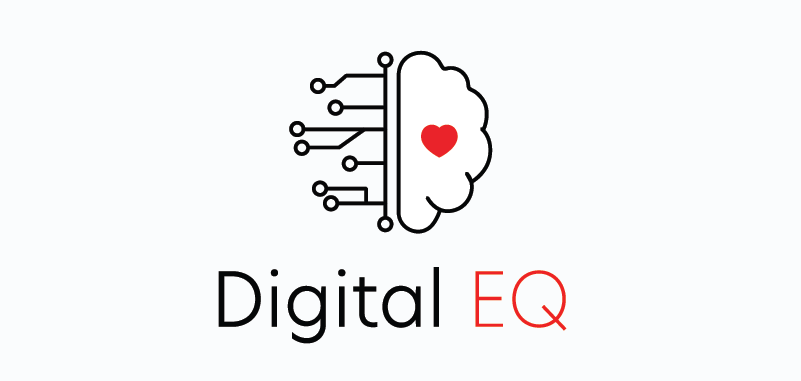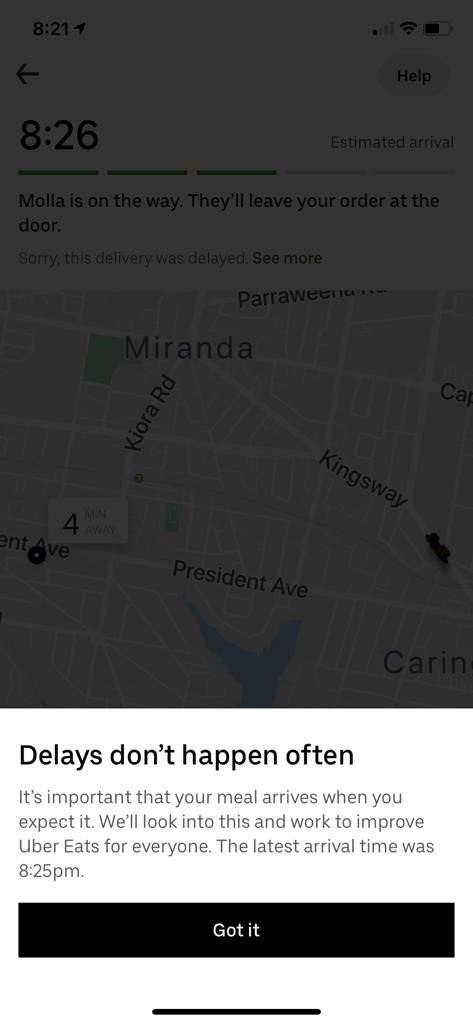
I wanted to share an excellent example of acknowledgement, personalisation and customer engagement by Uber Eats – all thanks to a combination of really smart thinking and the use of technology. Now that I’ve seen this, it’s going to be tough not to expect it from other brands.
What is Digital EQ?
Let’s first start with Emotional Intelligence (EQ). In its simplest form, EQ is people’s ability to read other people’s signals and react appropriately to them.
One of the categories within EQ is Empathy. Within the scope of service provision, empathetic people excel at anticipating, recognising and meeting customer needs.
Therefore, I define Digital EQ as:
The ability to anticipate and recognise customer sentiment and deliver a digitally enabled response which optimises the customer experience in real time, serving to build a deeper emotional connection.

Why is Digital EQ important?
Because it’s powerful. Consider a scenario most of us have previously been in – a bad experience with a brand. This could be a shipping delay, terrible customer service, bad quality of product, no company accountability, etc. The list goes on and on.
1. Acknowledgement: The very first thing any customer facing professional is taught is to acknowledge the issue. The above Uber Eats example addresses that, plus does it proactively, and at the point of anticipated customer friction.
In the short paragraph seen on the screenshot, Uber Eats has managed to acknowledge that they know their customers want their meal on time, that this isn’t a regular occurrence and that they’re going to be investigating the cause of the delay for future orders.
After seeing that message, I had a much more favourable perception of Uber Eats and by extension, Uber Rewards (of which I’m a member).
2. Personalisation: While the message itself may be generic and could apply to anyone whose order is delayed, this particular delay is naturally specific to my order. Therefore, a brand sending a message at this point in time is still a great example of 1:1 personalised communications.
3. Customer engagement: Thanks to Uber Eats’ anticipation of a customer’s feelings (who has experienced a delivery delay) and their subsequent acknowledgement, I am now much less likely to lodge a complaint, request a partial refund or post my experience to social media.
Moreover, I feel somewhat delighted that the issue has been recognised without any action from me. This is a positive outcome for NPS, primarily because Uber Eats have avoided negative feedback.
Delighted customers have been proven to demonstrate higher loyalty to a company. Berman (2005)[1] reported significantly higher levels of loyalty from delighted versus satisfied customers.
Berman cited a study where Mercedes-Benz USA found that the likelihood of clients who are dissatisfied with the service at a retailer only have a 10 per cent chance of buying or leasing from the same retailer. Mere satisfaction produces a 29 per cent likelihood of rebuy or re-lease. However, the likelihood of a delighted client rebuying or re-leasing is 86 per cent.
Should your brand adopt a Digital EQ approach?
The key learning here is that Uber Eats have worked to mitigate a potentially negative outcome by using their technology platform (that has all the relevant data) and applying some creative thinking.
Given that empathy was demonstrated with a single message, I’d strongly advocate for other brands to adopt this type of approach, if they are able to.
As a specialist in loyalty and customer engagement, I can tell you that I rarely see this kind of messaging. It’s a shame, because it’s very, very powerful and a key driver to establishing that much deeper and more meaningful relationship between a customer and a brand.
[1] Berman, B., ‘How to delight your customers,’ 2005

